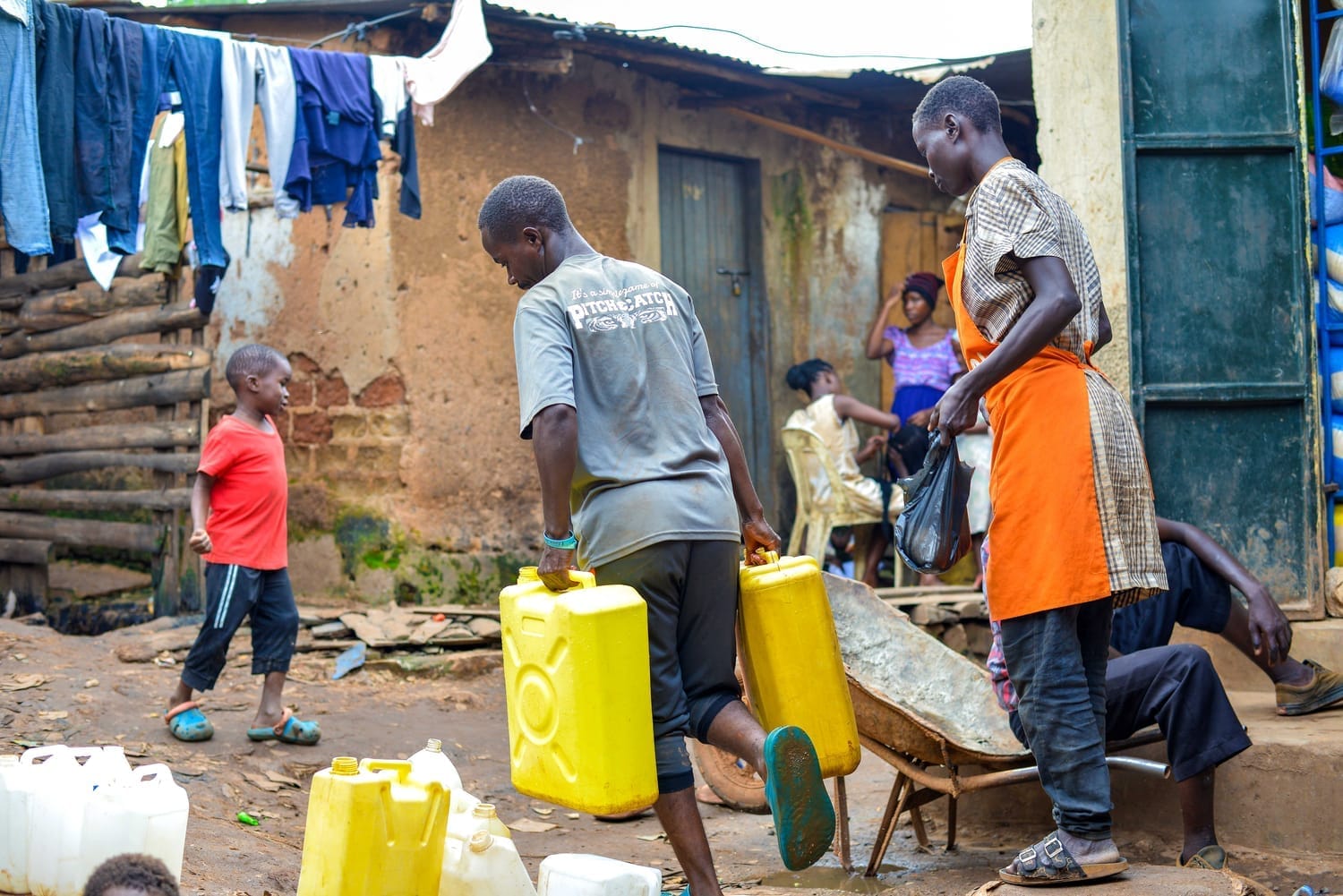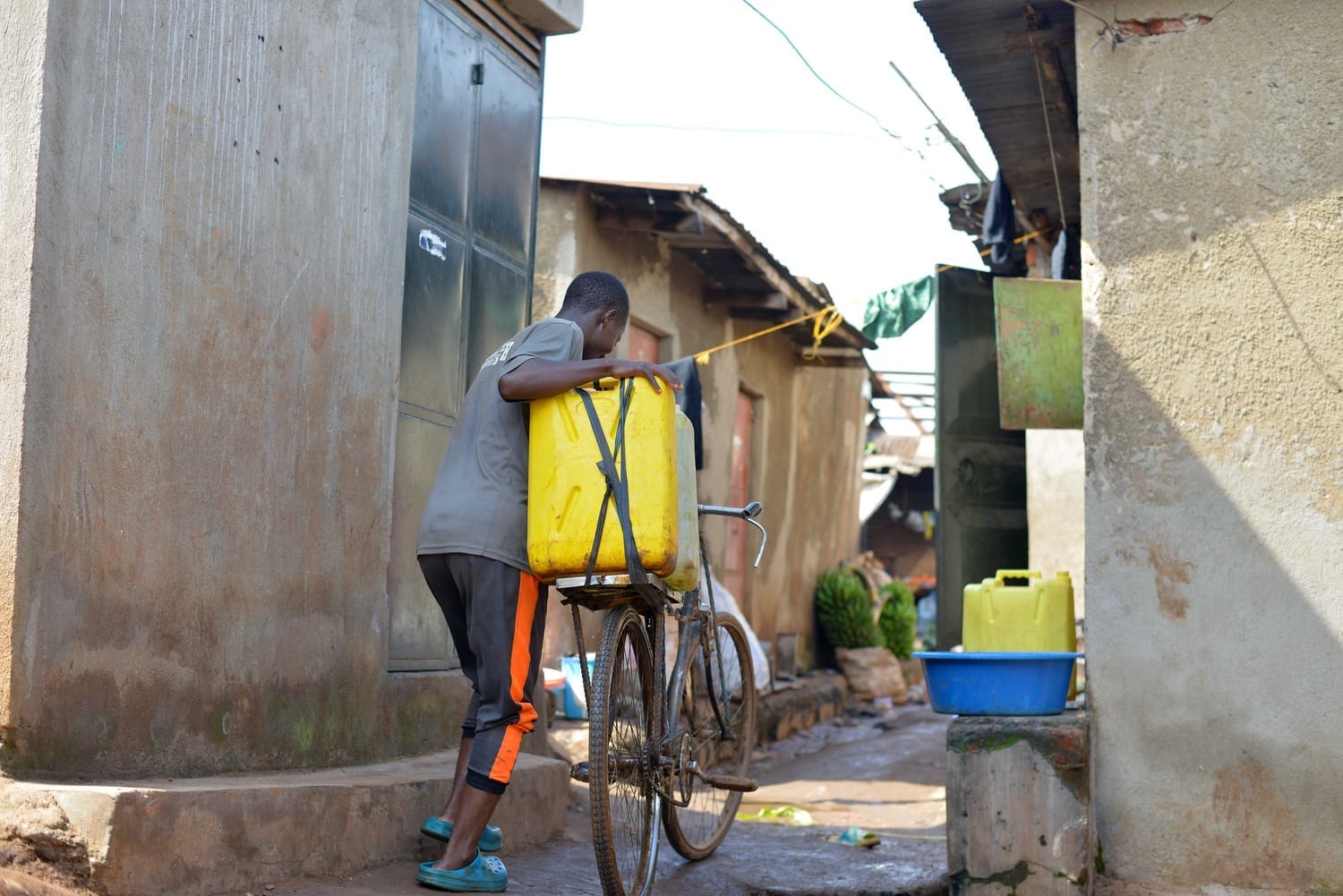Unsung Heroes of Kampala: How Informal Social Service Providers Keep the City Alive
A City on the Rise
Kampala, Uganda’s vibrant capital, is a city on the move. Its skyline stretches higher each year, its streets buzz with more people, and its neighborhoods overflow with energy and resilience. According to the Uganda Bureau of Statistics, Kampala’s population has soared from 1,507,800 in 2014 to approximately 1,799,000 in 2021, with projections estimating a rise to over 1,927,400 by 2030. It’s a remarkable trajectory, one that reflects urban dynamism, but also exposes growing pains in service delivery.
Kampala’s growth has far outpaced the capacity of its formal social service systems. In many ways, the city is bursting at the seams, struggling to provide essential services like clean water, sanitation, solid waste management, and sewerage to a rapidly expanding urban population. While formal service providers try to keep up, there’s a quieter, often invisible workforce that steps into the breach—informal social service providers.
Filling the Gaps Where Systems Fall Short
As the formal systems stagger under pressure, informal actors have emerged to meet the everyday needs of Kampala’s most vulnerable residents—especially in the informal settlements that house much of the city’s population. These neighborhoods, often tucked away in low-lying, unplanned parts of the city, remain largely outside the reach of piped sewerage systems and are inadequately served by formal waste collection efforts.
Even though piped water has been extended to many of these areas, the cost remains prohibitive for thousands of families. As a result, informal providers have become lifelines, delivering potable water, removing solid waste, and emptying toilets where no one else will.

The Faces Behind the Work
In collaboration with Friedrich Ebert Stiftung (FES), the Urban Action Lab from Makerere University, and Community Integrated Development Initiatives (CIDI), a team set out to document the lives of informal providers in Banda, one of Kampala’s largest informal settlements. What they discovered was a rich, complex world of everyday resilience, ingenuity, and silent labor.
These providers are not a monolithic group. From water carriers and pit latrine emptiers to waste collectors and mobile vendors, they span ages, skills, and motivations. Many are young men and women who took up the work as a means of survival, lacking better employment opportunities. Others are small-scale entrepreneurs who recognized a service gap and stepped in—not just to survive, but to thrive.
Social networks form the lifeblood of these operations. Word of mouth, local referrals, and community trust are more powerful than any billboard or business license. Most providers operate door-to-door, negotiating their fees directly and accepting cash-for-service payments on the spot.
A Service, Not a Handout
There’s a misconception that these informal providers operate only in desperation. But their work reveals discipline, consistency, and an intimate understanding of urban life at the grassroots level. They wake before dawn, carry heavy loads on foot or with pushcarts, navigate narrow alleys and steep gullies, and work tirelessly in conditions many would shy away from.
They are not asking for handouts; they are offering solutions. Where the garbage truck never reaches, they haul sacks of refuse. Where there is no sewer line, they manually empty and dispose of waste—often at personal risk. And where water prices are unaffordable, they find ways to deliver clean water in small, manageable units that residents can afford.
The Hidden Challenges
Despite their vital contributions, informal service providers face a multitude of challenges:
Social Stigma: Many are looked down upon for the nature of their work, seen as unclean or inferior.
Lack of Recognition: They remain unacknowledged in policy circles, often excluded from city planning or support programs.
Legal Insecurity: Without licenses or formal protection, they are vulnerable to harassment or displacement.
Health and Safety Hazards: Their work exposes them to harmful substances, dangerous conditions, and physical strain.
No Social Protection: They have no insurance, no sick leave, and no retirement plan—yet the city depends on them daily.
A New Lens on Urban Resilience
This story isn’t just about Banda or Kampala. It is a story shared by cities across the Global South—from Nairobi to Mumbai, Lagos to Jakarta—where informal service providers form the unrecognized backbone of urban survival.
But Kampala has an opportunity to do things differently. Instead of ignoring this essential workforce, what if the city embraced them as part of the urban system? What if policies acknowledged their role, legitimized their work, and offered basic support?
The reality is, without them, the city would not function. In areas untouched by centralized planning, they are the only thing standing between chaos and dignity.
From the Margins to the Mainstream
The film project—born from collaboration among local leaders, FES, CIDI, and the Urban Action Lab—aimed to give voice to these hidden heroes. Through it, Kampala has the chance to reframe its approach to urban governance.
Here are a few recommendations:
Policy Inclusion: Create platforms where informal providers can be consulted in planning and decision-making.
Basic Legal Protections: Provide identity cards, zones of operation, and legal recognition to reduce harassment.
Capacity Building: Train providers in hygiene, safety, and basic business management.
Financial Support: Enable access to small loans or savings schemes tailored to informal entrepreneurs.
Public Awareness Campaigns: Destigmatize their work and highlight their importance to community well-being.
A City That Works for Everyone
Cities are more than their highways, shopping malls, or skyscrapers. They are human ecosystems. And in Kampala, as in many other cities, the people who clean, carry, and care for the forgotten spaces are as crucial as the engineers and city planners.
The informal social service providers are not a failure of the system—they are evidence of the city’s resilience and ingenuity. They are a testament to what happens when people refuse to be defeated by circumstances.
Kampala’s future will depend not just on new roads and smart buildings, but on how well it can include, support, and celebrate the very people who make urban life possible for all.
Let’s not wait until their work is replaced by machines or forgotten in policy drafts. Let’s recognize, protect, and empower the people who already make the city work.
Because in every corner of Kampala, behind every clean pathway or functioning toilet, there is likely an informal worker who made it possible—with little more than grit, goodwill, and a wheelbarrow.

Let us know what you think in the comments!
Categories
Newsletter
Subscribe to the newsletter and stay in the loop! By joining, you acknowledge that you'll receive our newsletter and can opt-out anytime hassle-free.







